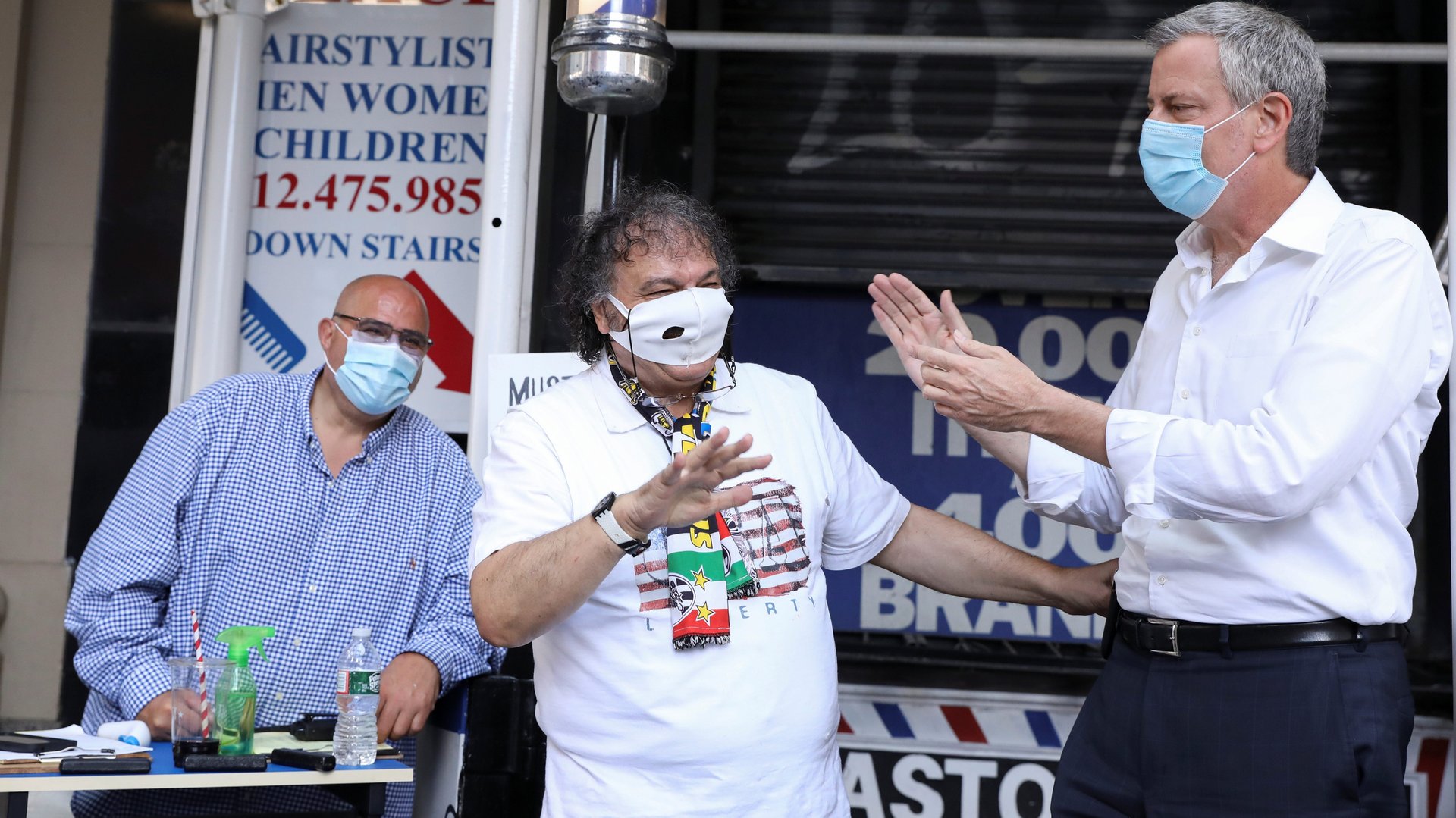New York City’s new vaccine mandate is the US private sector’s strictest yet
New York City rolled out the US’s first covid-19 vaccine mandate covering all private-sector workers today (Dec. 6) as winter approaches and the new omicron variant is circulating worldwide. The mandate, which will affect roughly 184,000 businesses, will take effect Dec. 27.


New York City rolled out the US’s first covid-19 vaccine mandate covering all private-sector workers today (Dec. 6) as winter approaches and the new omicron variant is circulating worldwide. The mandate, which will affect roughly 184,000 businesses, will take effect Dec. 27.
The new rule is much broader in scope than the current federal vaccine requirement tied up in the courts, which only applies to companies with 100 or more employees, and could serve as a model for other cities considering similar mandates.
“We’ve got to put this covid era behind us,” New York City mayor Bill de Blasio said on MSNBC, adding “vaccine mandates in my experience are the one thing that really breaks through.” The fate of this new mandate, though, rests in the hands of a De Blasio’s replacement, and the city has yet to provide details on how they plan to enforce the requirement.
NYC private sector mandate goes further than US rule
New York City’s new mandate targets a sector of workers that the federal government has thus far been unsuccessful at reaching entirely. US president Joe Biden’s administration has tried to mandate that companies with 100 or more employees request proof of vaccination or test employees weekly for covid-19 as a condition of employment. But this rule, which was released by the Occupational Safety and Health Administration (OSHA) on Nov. 4, is currently blocked by multiple US courts. While over half of US employers now say they either require or plan to require employees to be vaccinated in light of this rule, the ongoing legal battles make enforcing it tricky.
The new policy expands on New York City’s vaccine requirements for public workers put in place at the end of October. This mandate was met by plenty of pushback, and 9,000 city employees were placed on unpaid leave starting Nov. 4 because they refused to get vaccinated. But ultimately the majority of the city’s workforce complied with the mandate, which remains in place. De Blasio told MSNBC he was confident these new requirements would withstand legal challenges “because they’re universal and consistent.”
While Lawrence Gostin, a global health professor at Georgetown University, agrees with the model, he wrote in an email to Quartz that the city “has asked its businesses and residents to do quite a lot, and quickly. It is likely to face major public backlash and an avalanche of legal challenges.”
Questions remain about enforcement
The success of New York City’s private sector mandate hinges on how well it’s enforced; the mayor’s office said it will provide more details on this by Dec. 15. Several New York City small businesses contacted by Quartz were just hearing about the new policy, but had not yet given much thought as to how to respond.
“We do have a couple people on my staff who are vaccinated, and some who are not,” said Troy Binns, the owner of 1Star-Networks, which installs security camera systems and currently employs four people. Unvaccinated employees must present negative covid-19 tests each week, according to Binns, and are not dispatched to sites with mandates in place. He said his office manager was reviewing the policy.
New York City already has a high covid-19 vaccination rate compared to the rest of the country, with 89% of US adults having received at least one dose and 70% fully vaccinated. Still, the city’s new private sector mandate could serve as a test for other jurisdictions considering similar requirements. Gostin wrote that “other cities and states should adopt this model but with more thought,” ensuring they have the full agreement of their legislatures and governors.
The mandate now faces a potentially challenging road ahead: New York City-elect Eric Adams, who replaces De Blasio Jan. 1, has not yet said he’ll commit to it.